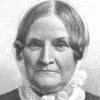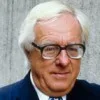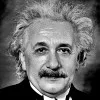One single grateful thought towards heaven, is the most perfect prayer!
[Ein einziger dankbarer Gedanke gen Himmel ist das vollkommenste Gebet!]
Gotthold Lessing (1729-1781) German playwright, philosopher, dramaturg, writer
Minna von Barnhelm, Act 2, sc. 7 [Minna] (1763) [tr. Holroyd/Bell (1888)]
(Source)
(Source (German)). Alternate translation:A single grateful thought toward heaven is the most perfect prayer.
[Source (1884)]
Quotations about:
thanksgiving
Note not all quotations have been tagged, so Search may find additional quotes on this topic.
Over the river, and through the wood,
To grandfather’s house we go;
The horse knows the way,
To carry the sleigh,
Through the white and drifted snow.Lydia Maria Child (1802-1880) American abolitionist, activist, journalist, suffragist
“The New England Boy’s Song About Thanksgiving Day,” st. 1
(Source)
Found in Child's book, Flowers for Children, Vol 2: For Children from Four to Six Years Old (1845). Alternate titles for the song include "Thanksgiving Day" and "A Boy's Thanksgiving Day."
Today we give our thanks, most of all, for the ideals of honor and faith we inherit from our forefathers — for the decency of purpose, steadfastness of resolve and strength of will, for the courage and the humility, which they possessed and which we must seek every day to emulate. As we express our gratitude, we must never forget that the highest appreciation is not to utter words but to live by them.
John F. Kennedy (1917-1963) US President (1961-63)
Thanksgiving Day Proclamation (4 Nov 1963)
(Source)
The 1963 Proclamation was written, finalized, and distributed prior to Kennedy's assassination, six days before Thanksgiving.
God is pleased with no music from below so much as in the thanksgiving songs of relieved widows, of supported orphans, of rejoicing, and comforted, and thankful persons.
Jeremy Taylor (1613-1667) English cleric and author
Sermon 25, “The Duties of the Tongue,” Part 4 [Eph. 4:29]
(Source)
I can’t think of a more wonderful thanksgiving for the life I have had than that everyone should be jolly at my funeral.
Lord Mountbatten (1900-1979) British statesman and naval officer (Louis Francis Albert Victor Nicholas Mountbatten, 1st Earl Mountbatten of Burma, b. Prince Louis of Battenberg)
(Attributed)
(Source)
Quoted in Richard Hough, Mountbatten (1980).
When you arise in the morning, think of what a precious privilege it is to be alive — to breathe, to think, to enjoy, to love.
Marcus Aurelius (AD 121-180) Roman emperor (161-180), Stoic philosopher
(Spurious)
(Source)
Attributed to Marcus Aurelius by Elbert Hubbard in "The New Thought," The Fra (March 1914):Epictetus, the Roman slave, and Marcus Aurelius, the Roman Emperor, taught a similar gospel. "When you arise in the morning think on what a precious privilege it is to live -- to breathe -- to think -- to enjoy -- to love! God's spirit is close to use when we love. Therefore it is better not to resent, not to hate, not to fear. Equanimity and moderation are the secrets of power and peace."
Marcus Aurelius thoughts when waking up in the morning (Meditations, 5.1 and 8.12) are far more prosaic and, well, stoic.
The world is so exquisite with so much love and moral depth, that there is no reason to deceive ourselves with pretty stories for which there’s little good evidence. Far better it seems to me, in our vulnerability, is to look death in the eye and to be grateful every day for the brief but magnificent opportunity that life provides.
Many times a day I realize how much my own outer and inner life is built upon the labors of my fellow men, both living and dead, and how earnestly I must exert myself in order to give in return as much as I have received. My peace of mind is often troubled by the depressing sense that I have borrowed too heavily from the work of other men.
Albert Einstein (1879-1955) German-American physicist
“What I Believe,” Forum and Century (Oct 1930)
(Source)
Einstein crafted and recrafted his credo multiple times in this period, and specifics are often muddled by differing translations and by his reuse of certain phrases in later writing. The Forum and Century entry appears to be the earliest. Some important variants:A hundred times every day I remind myself that my inner and outer life are based on the labors of other men, living and dead, and that I must exert myself in order to give in the same measure as I have received and am still receiving. I am strongly drawn to a frugal life and am often oppressively aware that I am engrossing an undue amount of the labor of my fellow-men.
— "The World As I See It [Mein Weltbild]" [tr. Bargmann (1954)]A hundred times every day I remind myself that my inner and outer life depend on the labours of other men, living and dead, and that I must exert myself in order to give in the same measure as I have received and am still receiving. I am strongly drawn to the simple life and am often oppressed by the feeling that I am engrossing an unnecessary amount of the labor of my fellowmen.
— "The World As I See It [Mein Weltbild]" [tr. Harris (1934)]I am often troubled by the thought that my life is based to such a large extent on the work of my fellow human beings, and I am aware of my great indebtedness to them.
[Oft bedrückt mich der Gedanke, in welchem Maße mein Leben auf der Arbeit meiner Mitmenschen aufgebaut ist, und ich weiß, wie viel ich Ihnen schulde.]
— Reduced variant in "My Credo [Mein Glaubensbekenntnis]" (Aug 1932)
‘Twas founded be th’ Puritans to give thanks f’r bein’ presarved fr’m th’ Indyans, an’ … we keep it to give thanks we are presarved fr’m th’ Puritans.
[It was founded by the Puritans to give thanks for being preserved from the Indians, and … we keep it to give thanks we are preserved from the Puritans.]













